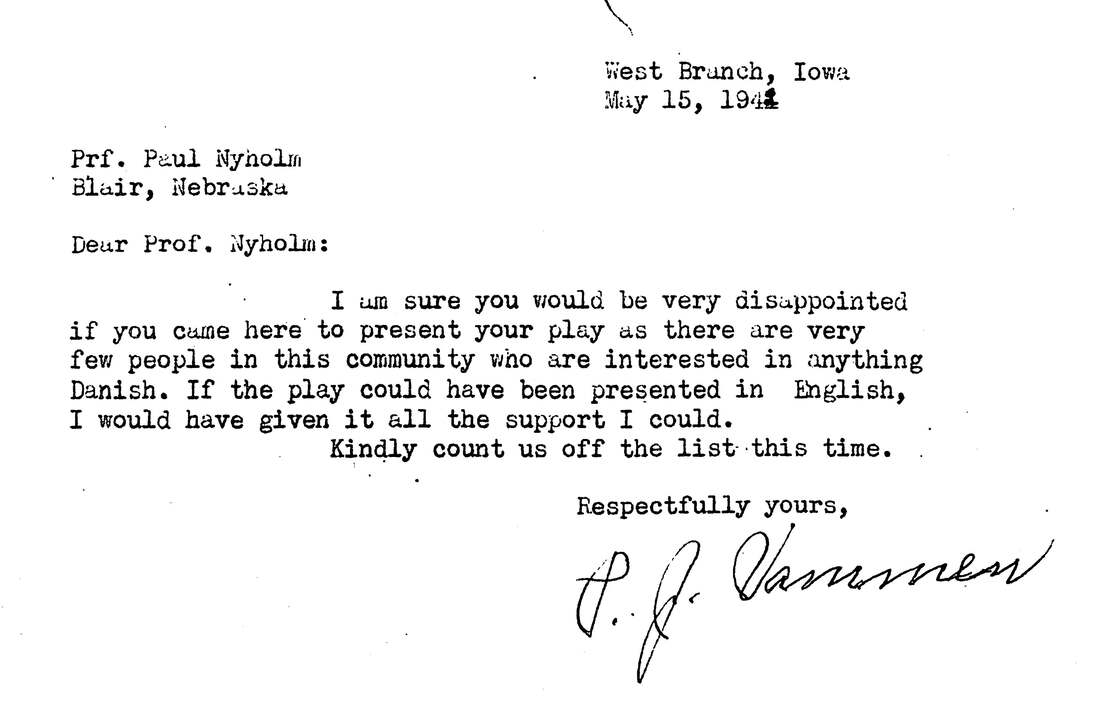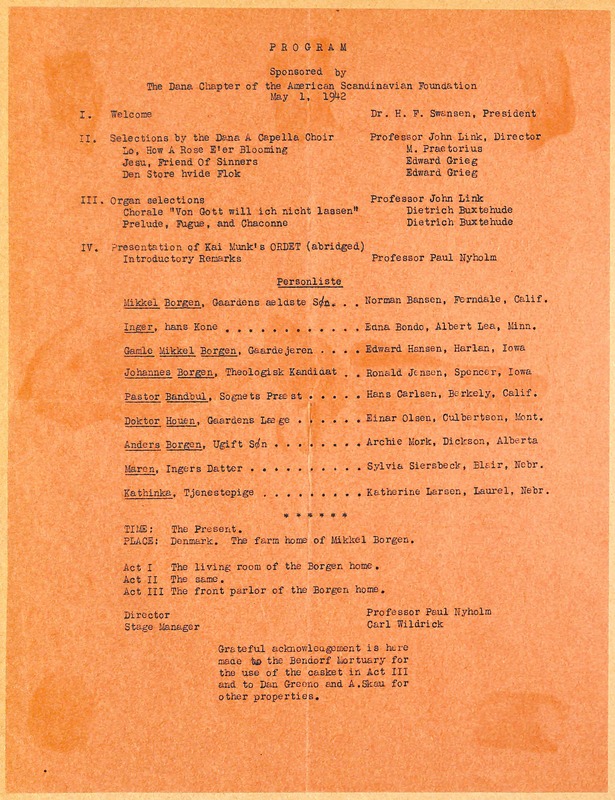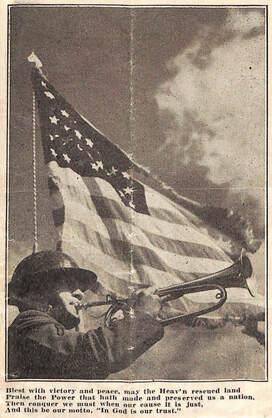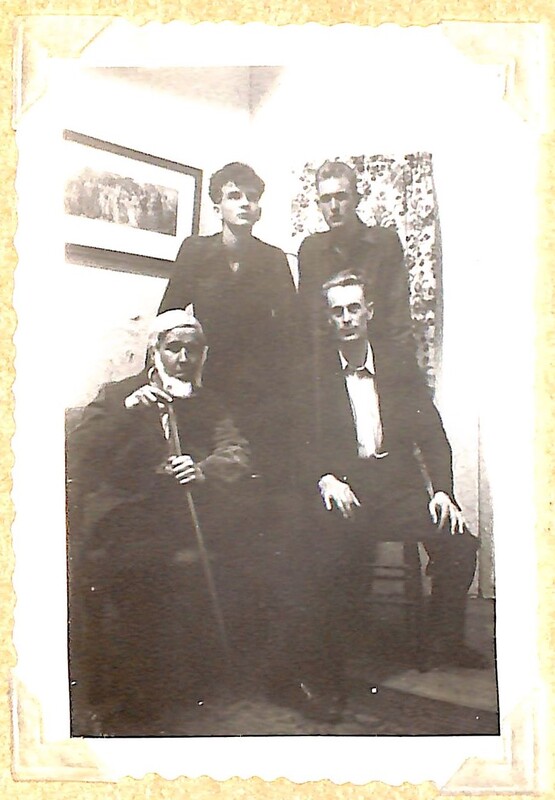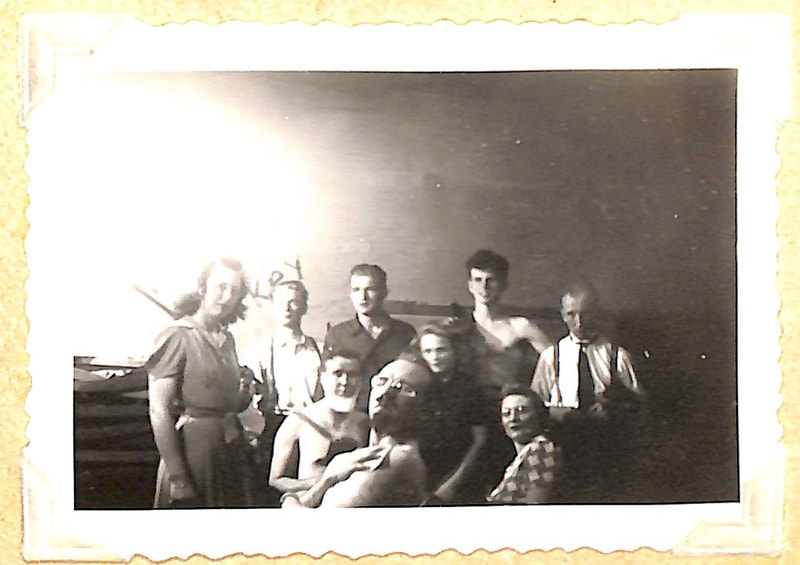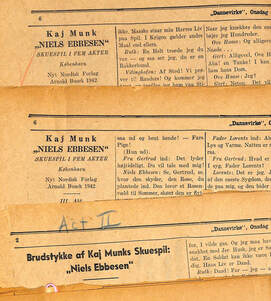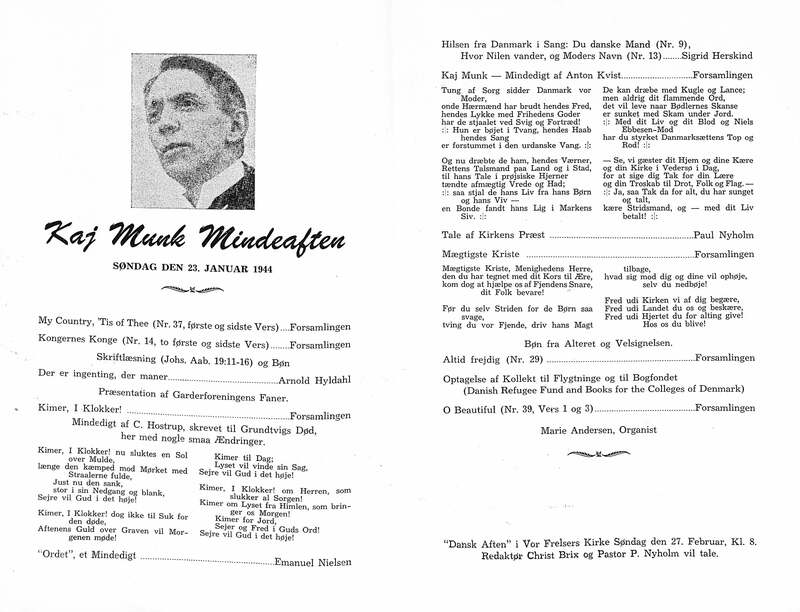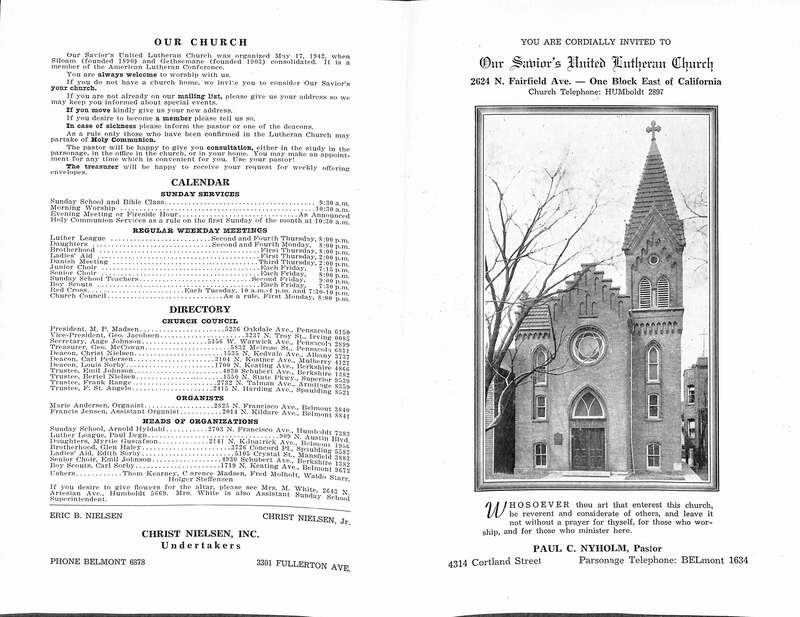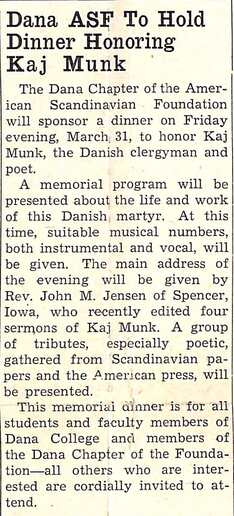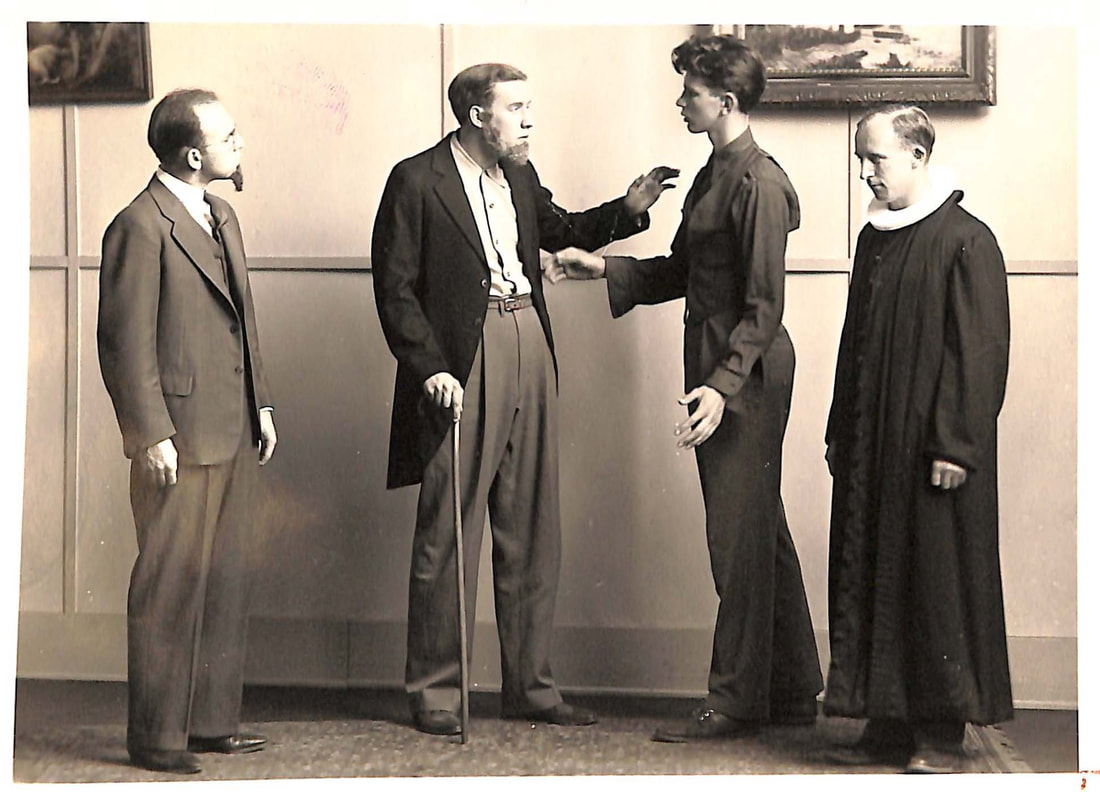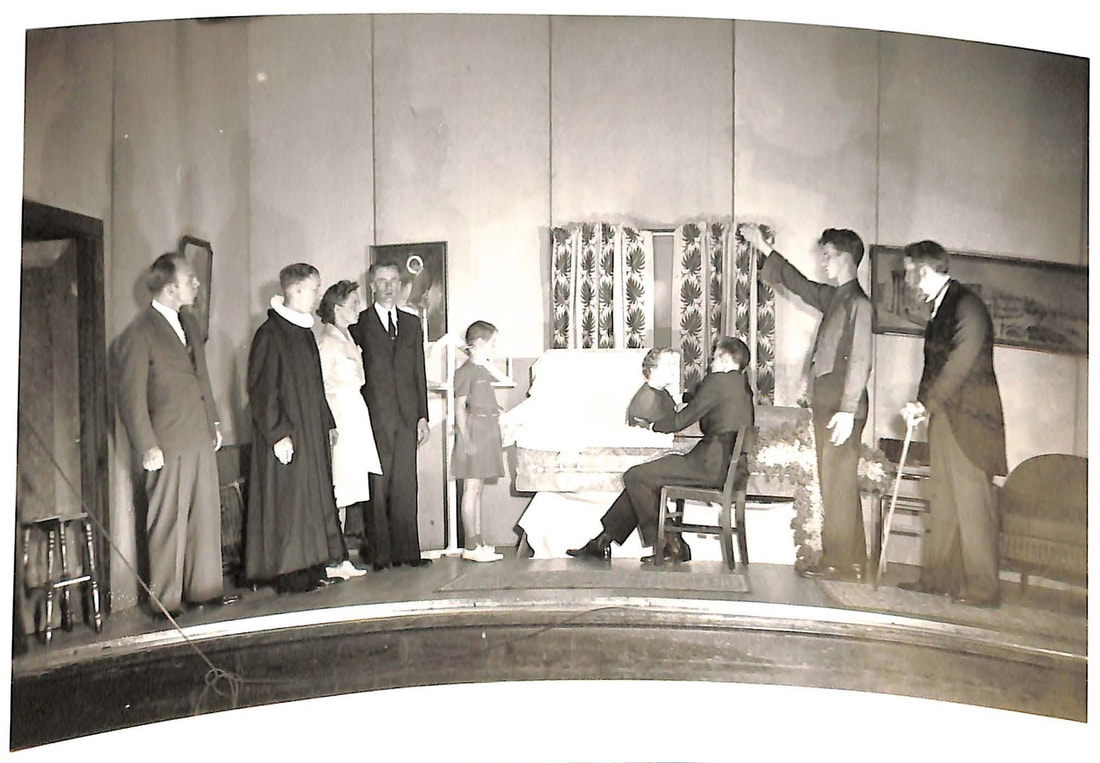The dana college performance and planning the tourOn May 1, 1942, students from the Dana College Drama Club performed selected scenes from Kaj Munk's drama The Word at the annual meeting of the "Society for the Advancement of Scandinavian Study" at Dana College and Trinity Seminary in Blair, Nebraska. The scenes were presented in the original Danish language, reflecting the history of the college.
Dana College and the associated Trinity Seminary have roots back to 1884 when America's first Danish Lutheran seminary was founded. In the beginning, Pastor Andersen taught four students in his home in the small town of Blair near Omaha. Dana College and Trinity Seminary were closely associated with the United Danish Evangelical Lutheran Church (later part of the Evangelical Lutheran Church in America). Sadly, Dana College had to close its doors in 2010, but parts of the campus is currently being developed into a non-profit housing/job training program. The students' performance at Dana College received very encouraging feedback. This led the director, Professor Paul Nyholm, to arrange for the first ever Dana College student drama troupe tour. In a newspaper article, Nyholm mentioned three main reasons for going on tour:
In the tour program, Danish American newspapermen praised second- and third-generation Danish Americans for learning Danish well enough to perform the play. Privately though, in a letter to Nyholm, Otto Sørensen from Den Danske Pioneer expressed his doubts about the tour: "It is, it appears to me, somewhat bold of you to go on such a tour: however, let's hope that he who dares wins." Nyholm reached out to local pastors and leading community members to help arrange for a stage and lodging for the group. Twelve Danish American communities welcomed them. A few communities declined due to the short notice, or they felt that they couldn't get a large enough audience together for a performance in Danish. At least one minister concluded that the play or the playwright was too controversial for his church leadership. From Council Bluffs, Iowa, Pastor Hansen, who would personally like to see the play, wrote: "It would in their [the church's leaders'] eyes be a desecration of the church, even if it was staged in the hall below the church." In the end, around 2,000 people saw the Dana students' performance of The Word in 1942. Students from Dana College also went on tour with The Word in 1976. At that time, however, the play was performed in a translated English version. |
Actor Ed Hansen's photos of the actors and backstage.
Why go on tourProfessor Paul Nyholm saw three reasons for going on tour with The Word:
|
Kaj Munk: Pastor, playwright and
|
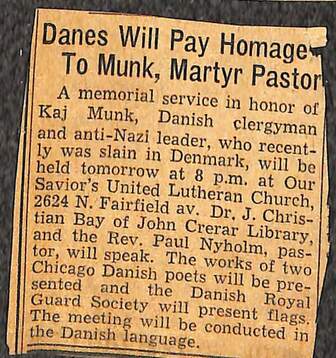
After Nazi supporters killed Kaj Munk in 1944, Danish Americans gathered to honor him. "The Word"'s director Paul Nyholm was one of the featured speakers at the Kaj Munk memorial evening at Our Savior's United Lutheran Church in Chicago (program below). A collection was taken for two Danish American causes: the Danish Refugee Fund and Books for Colleges of Denmark.
|
"Ordet" - the wordOrdet – which translates to The Word – is generally considered to be Kaj Munk's best play. Written in 1925, it portrays conflicts between individuals and their own faith – or lack of faith – as well as a conflict between two families who belong to different Lutheran church branches in Denmark. This conflict between the Grundtvigians (the so-called "happy Danes" who focused on a forgiving God and Danish history and culture) and members of the Inner Mission movement (the more Bible-based and conservative "holy Danes") would be very familiar to Danish Americans as it was mirrored in their own church societies. In The Word, both organized religion and a modern belief in science clash with true faith, and Kaj Munk shows pure faith leading to a modern-day miracle. The events in The Word take places mostly at the prosperous Grundtivigian Borgen farm where the head of the family, Old Borgen, lives with his three sons: The atheist Mikkel who is married to the pious and pregnant Inger, Johannes who was studying theology but is now insane – thinking he is Jesus – and Anders who wants to marry Anne, the daughter of Peter the Tailor, a leading Inner Mission man. While the two patriarchs square off about whether or not Anders and Anne should be allowed to marry, Inger dies shortly after giving birth. The insane Johannes returns, having been healed, and finding his strength in the faith of Inger's young daughter, asks that Inger be resurrected. As Inger returns to the living, her husband Mikkel becomes a believer in Christ. While the Dana performance of The Word was generally very well-received, there was some discussion in the Danish American newspapers about how the director abridged the original play. One person, Marius Krog, argued that the director seemed to conveniently exclude the play's criticism of Inner Mission (the branch that Dana College was considered to be part of). The director, Paul Nyholm, disagreed and argued that the play was shortened as the full version would have required four more actors and would have made it very difficult for the American-born students to learn all the lines in Danish. In Nyholm's opinion, Kaj Munk would have approved of the way the play was abridged as it enabled the performance and the tour, which brought the message of the play to a large number of people. |
The play The Word remains popular in Denmark. In 2020, it was presented by Aarhus Teater and in 2021, it will be performed at the Copenhagen theater Folketeatret.
|

